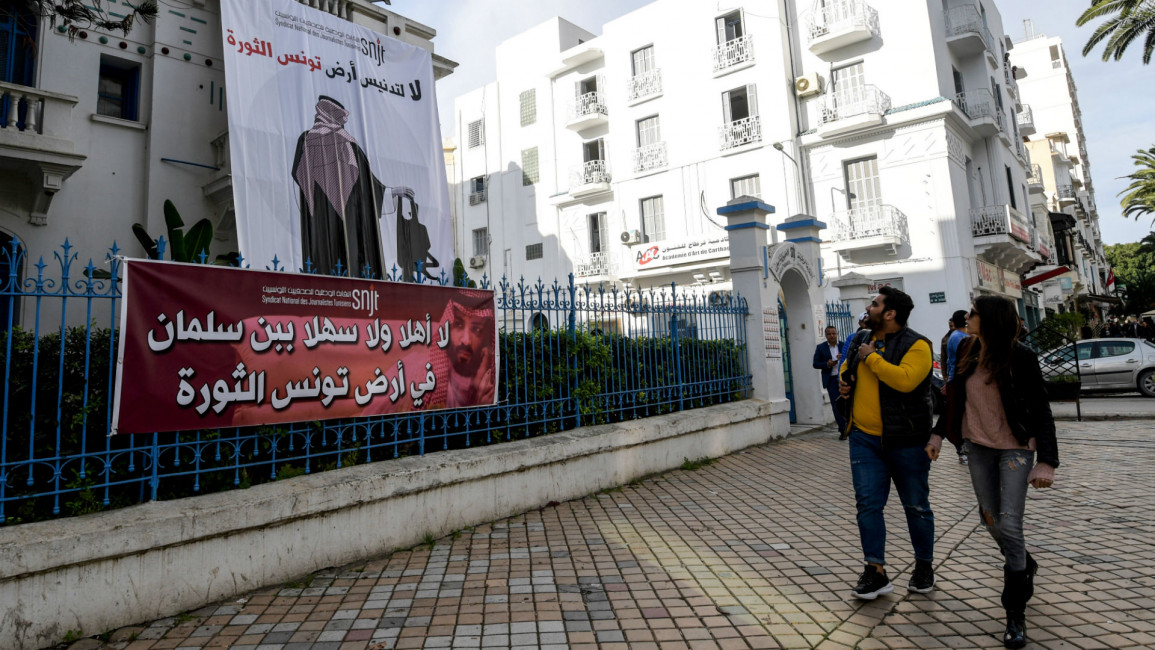Tunisian activists plan protests for Saudi crown prince's visit
Tunisian activists are planning protests in the North African country, ahead of a visit from controversial Saudi Crown Prince Mohammed bin Salman on Tuesday.
Tunisian unions and civil society groups called for protests as the crown prince visits Tunis, amid a cloud of controversy surrounding his alleged involvement in the murder of Saudi journalist Jamal Khashoggi last month.
Crown Prince Mohammed is to call in Tunisia for a few hours on Tuesday, but the visit is particularly sensitive following the brutal murder of Khashoggi and the detention of Saudi human rights activists.
Tunisia was the first country to undergo protests and revolution during the Arab Spring, and activists still cherish its reputation as a leading Arab country for human rights and democracy.
|
|
Protests have been planned by student groups, human rights organisations and journalist unions in the cities of Tunis and Sfax ahead of Prince Mohammed's visit.
A mild critic of the crown prince, Khashoggi disappeared after entering the Saudi consulate on 2 October, with Turkish intelligence saying his body was dismembered and dissolved in acid.
American and Turkish intelligence have also linked the crown prince - who controls all of Saudi Arabia's key institutions -to the murder.
Banners have been raised in Tunis opposing the crown prince's visit, including one stating: "No to the stepping on the land of Tunisia, [the land of] the revolution", displaying an image of Prince Mohammed and an electric saw.
An open letter to Tunisia's president from the country's journalist union slammed the crown's prince's visit which "constitutes a danger for the safety and the peace of the region and the world, and a real threat to freedom of expression".
They added that his trip was "a flagrant violation of the principles of our revolution".
Tunisians overthrew dictator Zine El-Abidine Ben Ali in 2011, following weeks of demonstrations, which triggered the Arab Spring and revolutions in Libya, Egypt and Yemen.
The uprisings led to fears in Gulf states of unrest, particularly following large-scale protests in Bahrain by the country's Shia majority.
Since then, Saudi Arabia and the UAE have been accused of backing counter-revolutionary forces and dictators in Syria, Egypt, Libya, and elsewhere.



